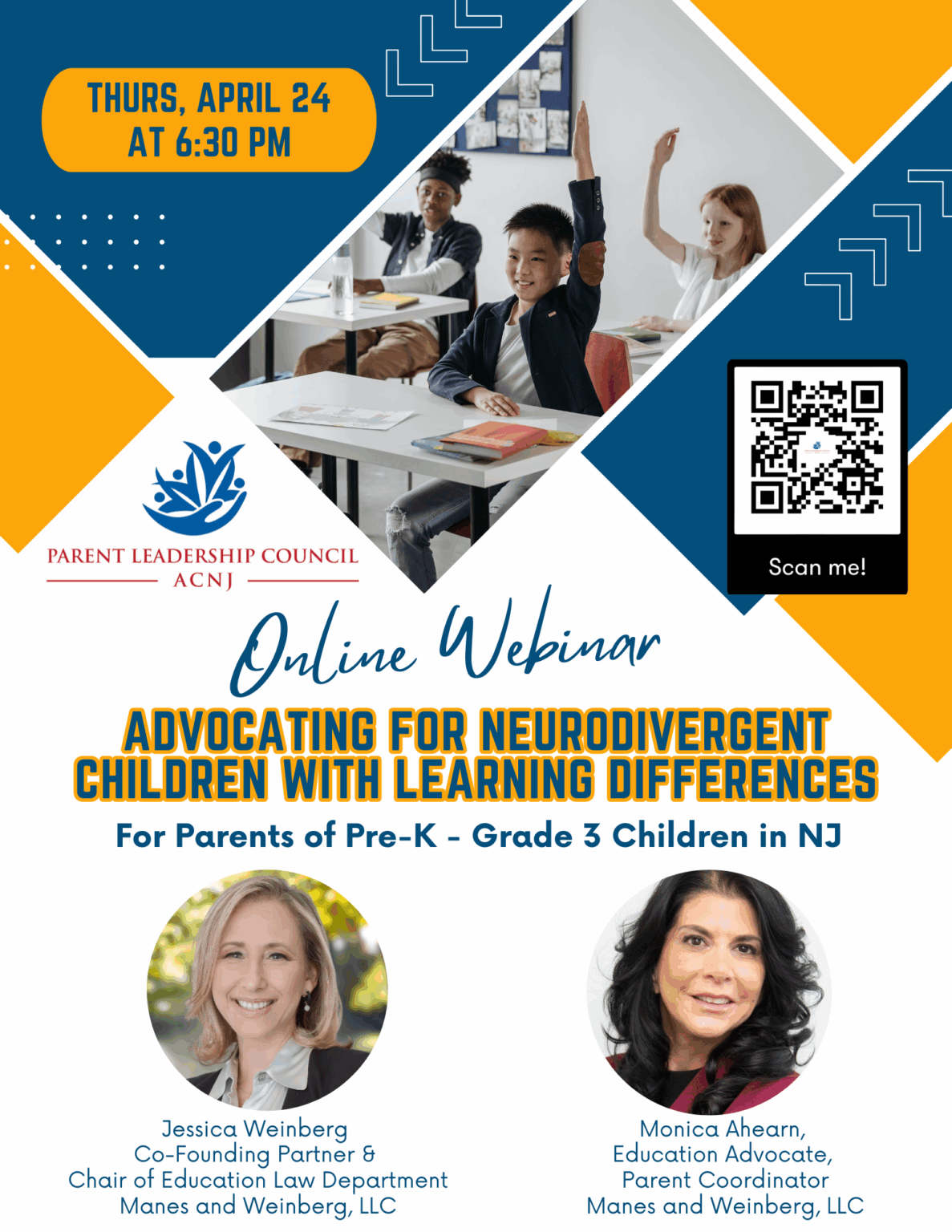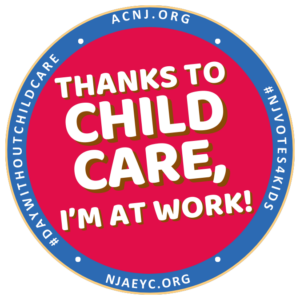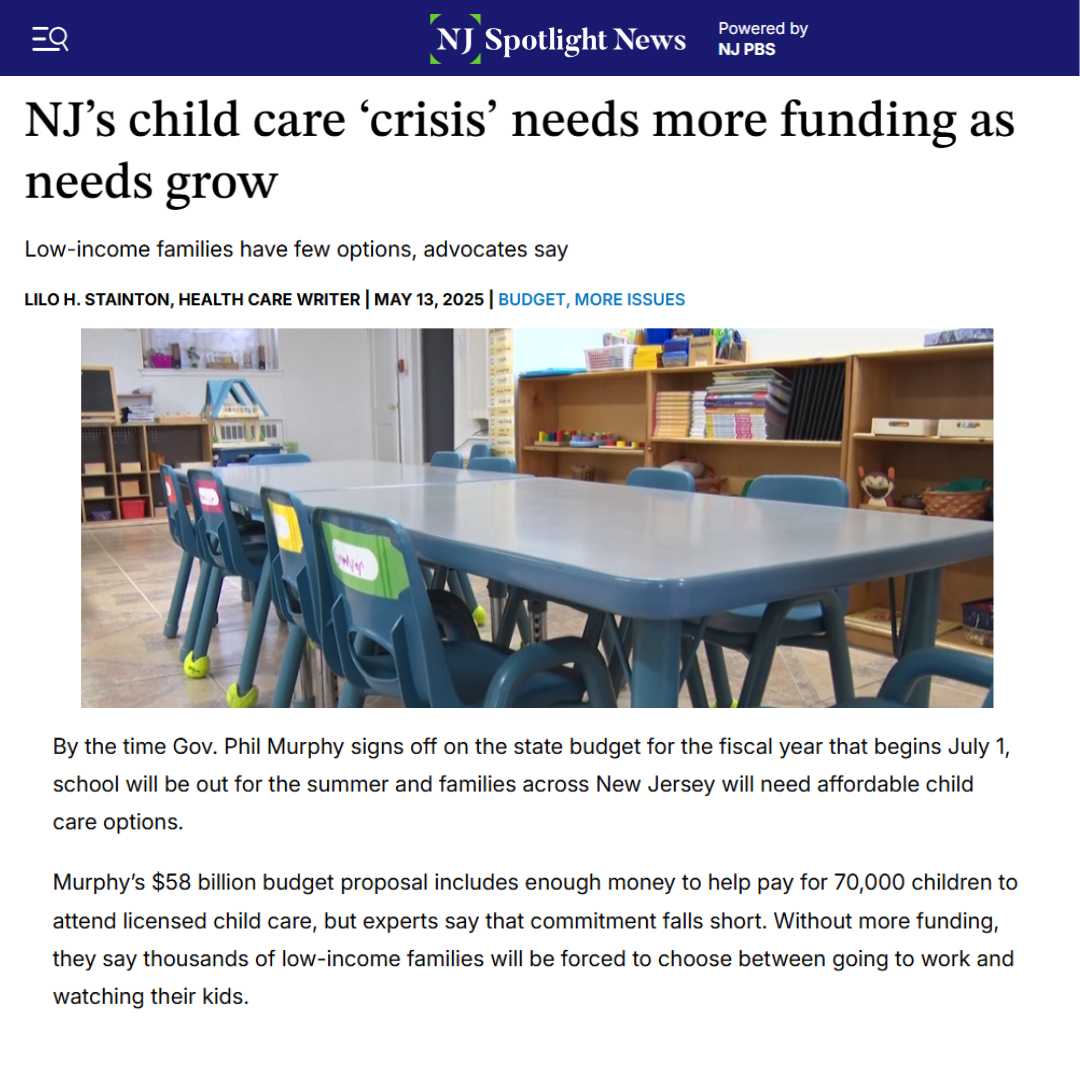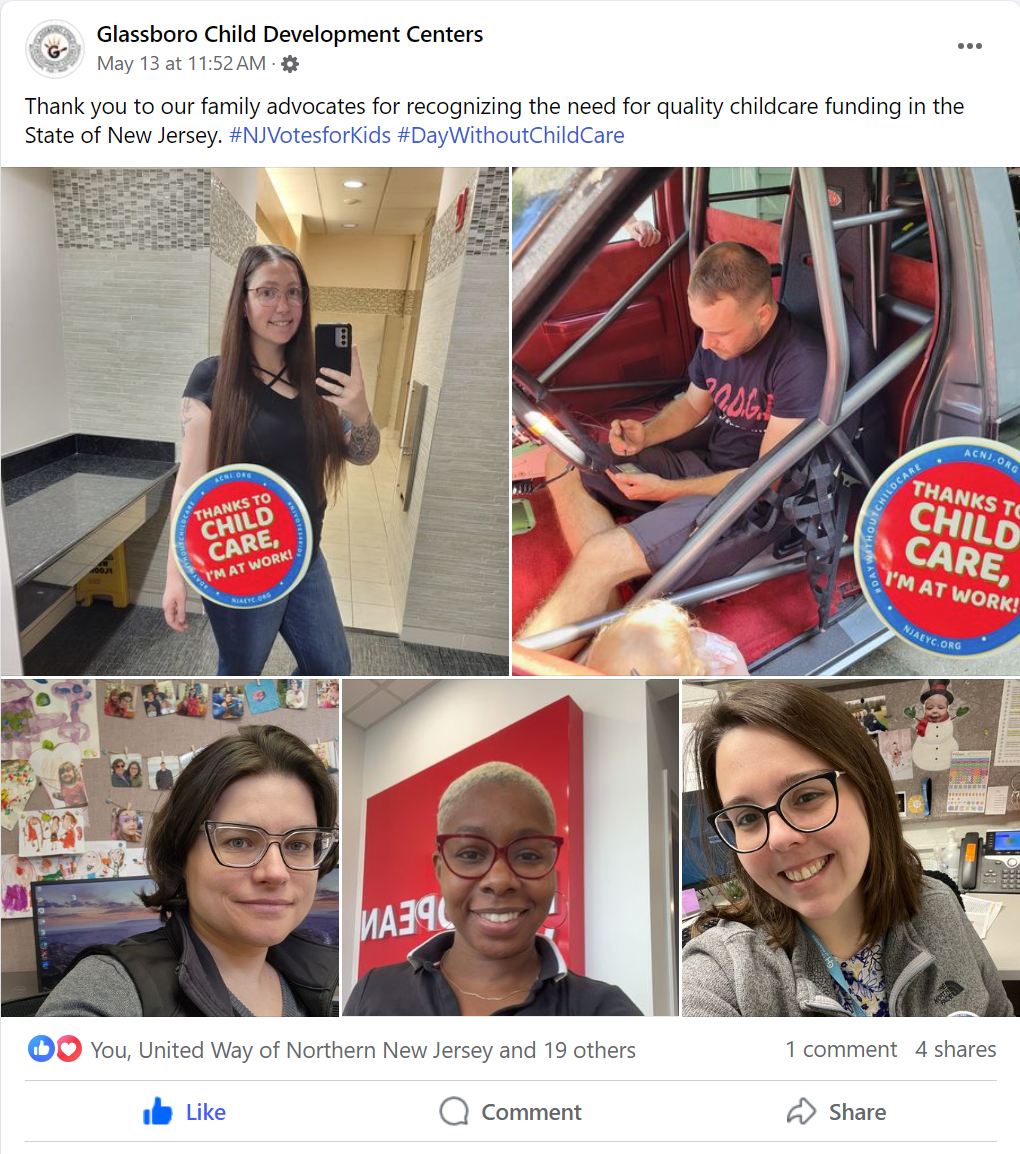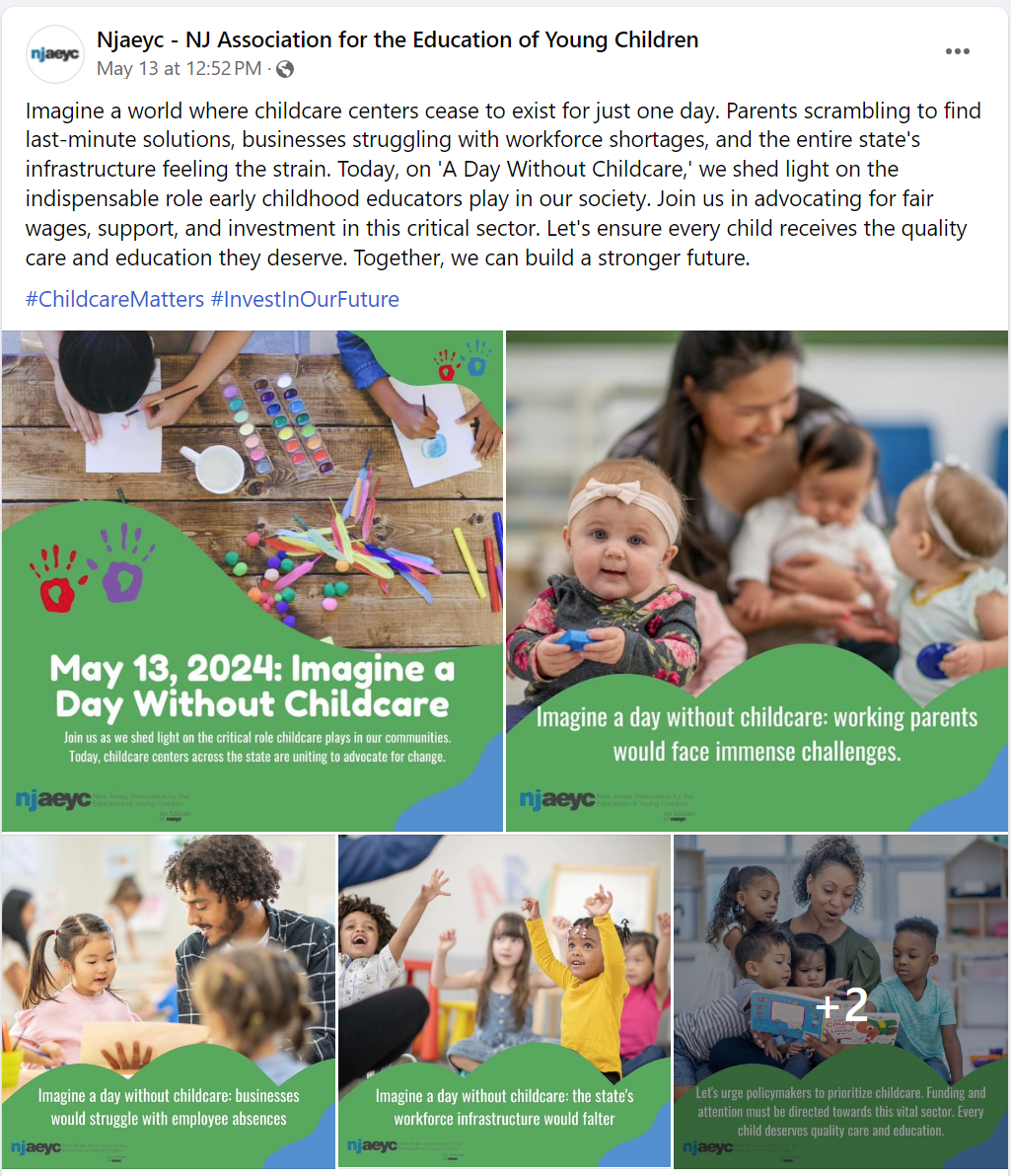This action resulted from the US Department of Health and Human Services’ (HHS) effort to make the department “more responsive and efficient.” On March 27, HHS announced a “dramatic restructuring in accordance with President Trump's Executive Order: Implementing the President’s ‘Department of Government Efficiency’ Workforce Optimization Initiative.” The press release announced a significant staff reduction due to streamlining and centralizing core functions, consolidating divisions, and combining 10 regional offices into five.
At the same time, members of Congress are debating significant cuts to programs like Medicaid, the Supplemental Nutrition Assistance Program (SNAP), and other food programs like school meals. The federal Social Services Block Grant, which supports the work of our Department of Children and Families (DCF), may also be subjected to cuts. Any federal cuts to these programs will significantly impact New Jersey children and families.
Federal and state Medicaid dollars fund NJ FamilyCare, which provides health insurance to 1.8 million people in New Jersey, including 830,000 children, ages 0-18, from low- and moderate-income families and another 80,000 young people, ages 19-21. Medicaid covers almost one-third of the births in New Jersey annually and also covers long-term care for the seriously disabled and elderly. For many families, this coverage is temporary and invaluable during times of crisis. People furloughed or laid off can rely on NJ FamilyCare for coverage so medical bills do not drive them into debt.
In March, the House of Representatives passed a Budget Resolution seeking to cut $1.5 trillion over the next 10 years. To help achieve this goal, members of the House Energy and Commerce Committee, which oversees Medicare and Medicaid, were instructed to cut at least $880 billion from the budget. It is anticipated that most of the committee’s cuts will have to be from Medicaid.
Federal cuts to Medicaid will have a devastating impact on NJ FamilyCare, resulting in a potential loss of $10 billion, according to the Murphy Administration -- funding the state does not have. Several options are being considered, including significant changes to the Federal Medical Assistance Percentage (FMAP), which are the percentage rates used to determine the amount a state receives from the federal government for its Medicaid program. Others are recommending that the federal government shift more administrative costs to states, restrict or eliminate the use of provider taxes and directed payments to health care providers, or impose work reporting requirements that studies have shown are more likely to result in a loss of coverage for many low-income working Americans, resulting in a lack of needed health care or increase in unaffordable medical bills.
The FMAP is determined by a formula based upon a state’s per capita income. New Jersey currently benefits from a statutory 50 percent floor on matching funds for most Medicaid services. If this “floor” were eliminated, New Jersey’s match rate would be closer to 38 percent. The proposals being considered by Congress may result in a loss of $2.2 - $5.2 billion in federal funding to New Jersey.
The FMAP determines the match rate for other federal funding, including foster care, adoption, and kinship legal guardianship subsidies, and DCF prevention programs. Medicaid helps support services provided in schools for students with Individual Education Plans (IEPs). The NJ Children’s System of Care (CSOC) provides treatment and support services to over 38,000 children and youth with moderate to severe behavioral health problems and/or intellectual or developmental disabilities, including autism, each month. CSOC services are provided at no cost to families, relying on private health insurance, NJ FamilyCare, and state funds. DCF reports that 69% of children receiving services through CSOC are insured by Medicaid. A reduction in the federal match for Medicaid and the federal Children’s Health Insurance Program (CHIP) could create a $38.9 million budget gap for CSOC.
Finally, the House Agriculture Committee has been instructed to cut $230 billion, which could mean a significant reduction in funding for the Supplemental Nutrition Assistance Program (SNAP) and school meals. The continuing resolution currently funding the federal government through September has already cut $26 million in funding that supports New Jersey’s local food programs.
Watch ACNJ’s Medicaid Matters webinar for more details.

